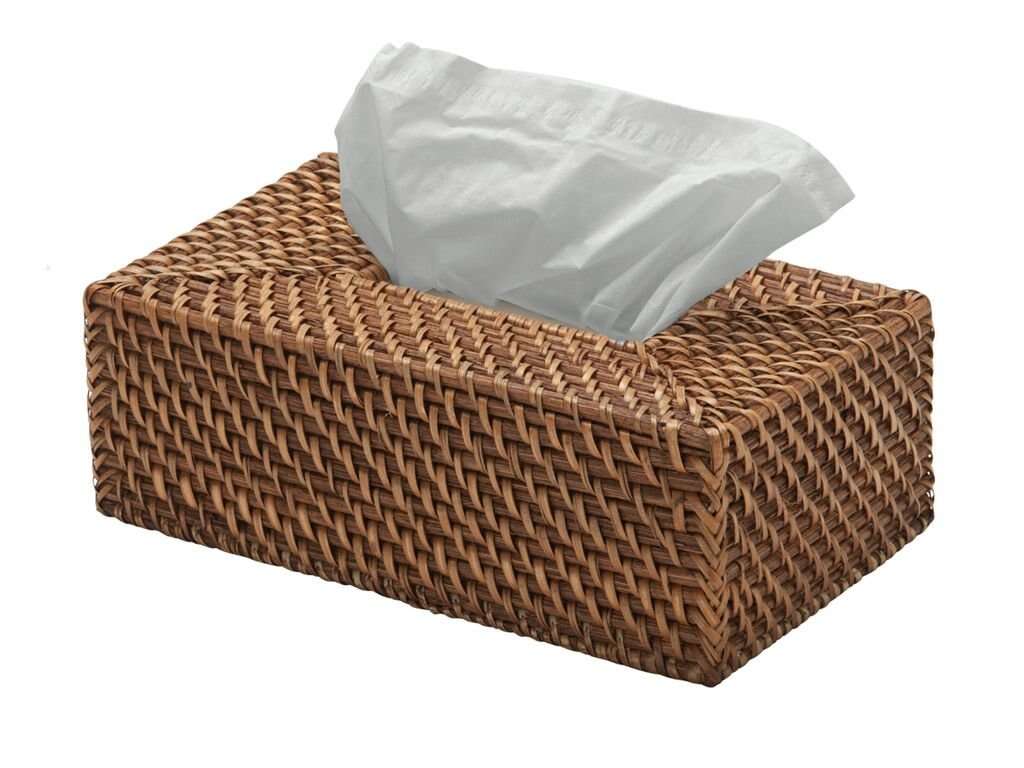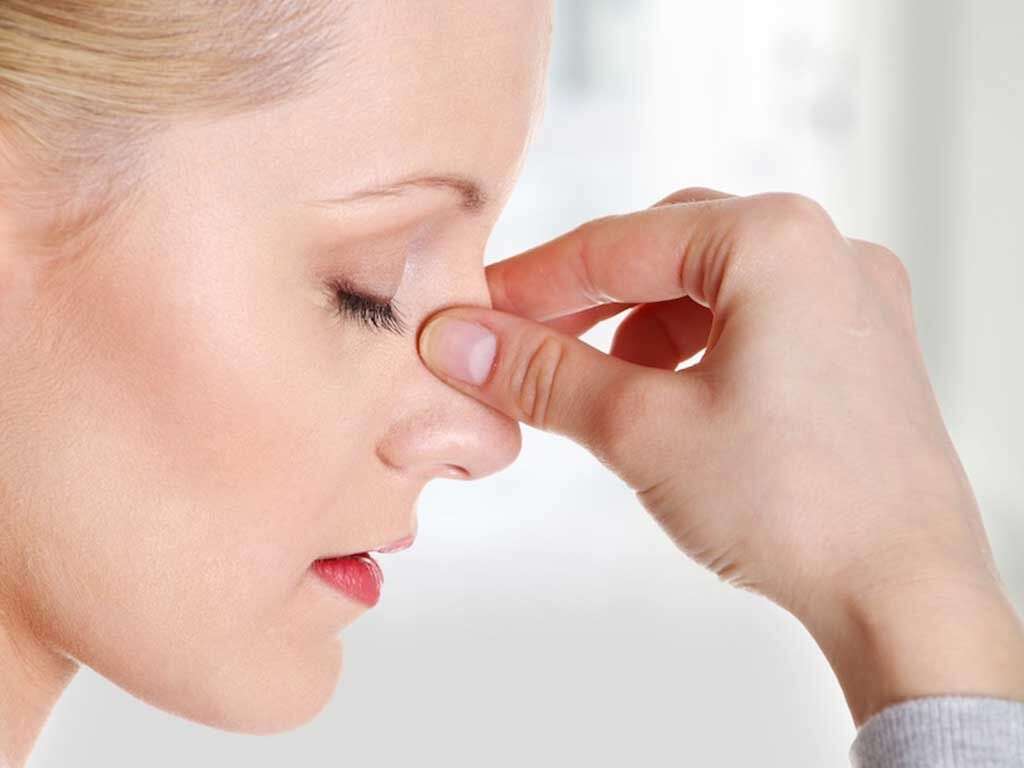10 Symptoms of Nasal Polyps
Nasal polyps are small growths that can be found lining the inside of the nasal passage. They are not cancerous and are not likely to cause any pain. In many cases, the patient will not even be aware that they have them. They are generally caused by chronic inflammation and are usually a result of infections and/or allergies, among other things.
If the polyps grow large enough then they can begin to cause some unwelcome symptoms. They are not dangerous, but they should still be treated for the patient’s comfort at least if they do cause discomfort.
Treatment often involves the use of anti-inflammatory medication, but surgery is also sometimes necessary. This article looks at 10 symptoms of nasal polyps.

Symptom #1: Blocked Nose
Kids, in particular, tend to get blocked noses fairly frequently, although adults can get the symptom occasionally. It usually occurs as a result of having a cold or the flu, while it is also often experienced by people that have allergies. The symptom tends to be a result of inflamed nasal tissues blocking the nasal passage.
In cases of nasal polyps, they can grow large enough to block the nasal passage. This will make it hard for the patient to breathe through their nose, leaving them having to breathe through their mouths instead. The patient should hopefully be able to breathe freely again once the polyps have been dealt with.

Symptom #2: Snoring
When we breathe in and out, our passageways are usually wide enough for air to pass through freely. If, for some reason, these passageways were too narrow then the air would not be able to pass through as freely. This can result in snoring as the air is forced through a narrower than usual airway.
Snoring is usually not such a problem for the patient, provided they remain sleeping. It can be a problem for their partners, however, who have to put up with the noise. Treatments are available that may be able to help with the snoring while the underlying cause is being treated.

Symptom #3: Chronic Mouth Breathing
Depending on the size and location of the nasal polyps, they may cause obstructive symptoms. As the passage of air through the nose becomes compromise, patients tend to start breathing through their mouths.
This is something that should be evaluated by a healthcare professional to prevent further complications.

Symptom #4: Lost Sense of Taste
Our sense of taste is very important to us, largely because it helps us to tell good food from bad. Without it, we might end up eating the wrong thing and this could be very bad for us. Our sense of taste also helps to make food delicious for us, encouraging us to eat.
Certain conditions can cause us to lose our sense of taste, however, one of which is nasal polyps. It can make food a lot less appealing to the patient, potentially causing them to lose weight. It is important to remember to get all the nutrition that you need regardless of how unappealing it may be to you.

Symptom #5: Lost Sense of Smell
Our sense of smell tells us so much about the world around us. It is common for us to smell different objects, including food, to get as much information about them as possible. Our sense of smell also has a very strong connection with our memory, and just the slightest of aromas can stir memories of days gone by.
We get our sense of smell thanks to organs that are located in the nasal cavity. As such, if the nasal passage was blocked, then our ability to smell objects can be impeded. Patients should hopefully regain their sense of smell once the polyps have been successfully treated.

Symptom #6: Runny Nose
It is quite common for young children to develop a runny nose. This is largely because they are still quite sensitive to irritants such as hay fever and other allergens, and their sensitivity will usually fade in time. Adults can also get a runny nose as well, though, and it is often caused by illnesses such as a cold or the flu.
Another potential reason for having a runny nose is nasal polyps. It is a harmless symptom but it can be quite irritating and it can also lead to a sore nose from all the blowing and wiping. A doctor may be able to give you something that will help relieve the symptom.

Symptom #7: Post Nasal Drip
The mucus that lines our nostrils is usually quite sticky. This is necessary because it helps to trap particles and pathogens, preventing them from getting into the body where they might do harm. This mucus is usually ejected from the nostrils when we blow our nose, but this is not always the case.
Patients with nasal polyps can find that the nostrils produce excess mucus because of the irritation caused. When this mucus is made in larger quantities than usual, it tends to be more liquid than it otherwise would be. It can then run down the back of the throat in a condition known as post nasal drip.

Symptom #8: Facial Pain
Conditions like nasal polyps can be quite uncomfortable. They can cause all sorts of irritation to the patient, including those that have already been listed above. Perhaps one of the more unpleasant symptoms of the condition, however, is that they may cause pain in the face.
Patients with nasal polyps will often complain that the front of their face and forehead is painful. Patients will also experience headaches more than usual, while some will also feel a sensation of pressure on the area. A doctor may be able to prescribe something to relieve the pain if necessary.

Symptom #9: Tooth Pain
A trip to the dentist is something that will have a lot of people’s nerves on edge. Unfortunately, however, trips to the dentist are often necessary as numerous dental problems can arise. Sometimes, though, what might seem like a dental problem is caused by something you would not expect.
Patients with nasal polyps will sometimes find that they experience quite a bit of tooth pain, especially on the front teeth. This is obviously very unpleasant and the patient might need some pain relievers to help, but it is important to use pain relievers with caution. The pain should go away when the underlying cause has been dealt with.

Symptom #10: Nosebleeds
The lining of our nostrils internally is quite thin, and we have blood flowing just beneath the surface. This means that bleeding occurs here relatively easily. As such, nosebleeds are not usually something to be overly concerned about, but they may indicate that there is a problem somewhere.
Nasal polyps are likely to irritate these sensitive linings and they may even cause the lining to break. A runny and blocked nose can also be irritating and cause a lot of friction as the patient tries to rub and blow their nose. Thus, patients with the condition can find that nosebleeds are a fairly common occurrence.












